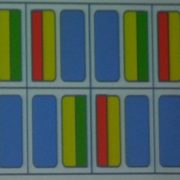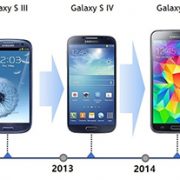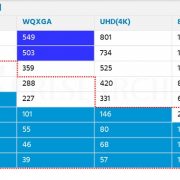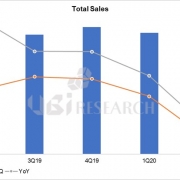OLED Takes Over Monitor and Notebook Markets Too
Following the mobile and large area panel markets, OLED is now actively entering the monitor market.
Until now, the monitor and notebook markets were mostly occupied by LCD. Burn-in effects and power consumption were the biggest reasons that prevented OLED panels from being applied to monitor and notebook. Generally, monitor and notebook are for office use. Within the office environment, window’s task bars and icons on the main screen are fixed. Also, as the average hours of use is much higher than TV or mobile, burn-in effects is an issue. Also as Office programs or internet browsers, which usually have white background, are used heavily, power consumption is high as OLED panel of RGB method has to drive all subpixels in order to actualize white.
Starting with the black and white OLED monitor in 2012, Sony steadily developed/mass produced OLED monitor. However, it is analyzed the application was possible as this OLED monitor was mostly used for medical and broadcasting uses and in different settings from the office monitor environment.
However, with Lenovo and HP’s announcements of OLED Notebook release, the status is changing.
In January 2016, Lenovo announced world’s first OLED notebook ‘X1 Yoga’ with 14 inch AMOLED panel with 2550×1440 resolution. Following this, HP also announced the release of 13.3 inch OLED hybrid laptop/tablet ‘Specter X360’ with 2560×1600 resolution.
These OLED panel equipped notebook releases break the existing perception that OLED panel is not suitable for monitor and notebook, and can be considered that OLED panel’s lifetime and power consumption have been achieved to be suitable for monitor and notebook. As such, much attention is on whether the OLED market will be able to greatly expand in the monitor and notebook markets following their success in mobile and TV markets.

Lenovo’s ‘X1 Yoga’ (left), HP’s ‘Specter X360 hybrid laptop/tablet’ (right), Source : Lenovo, HP











댓글을 남겨주세요
Want to join the discussion?Feel free to contribute!